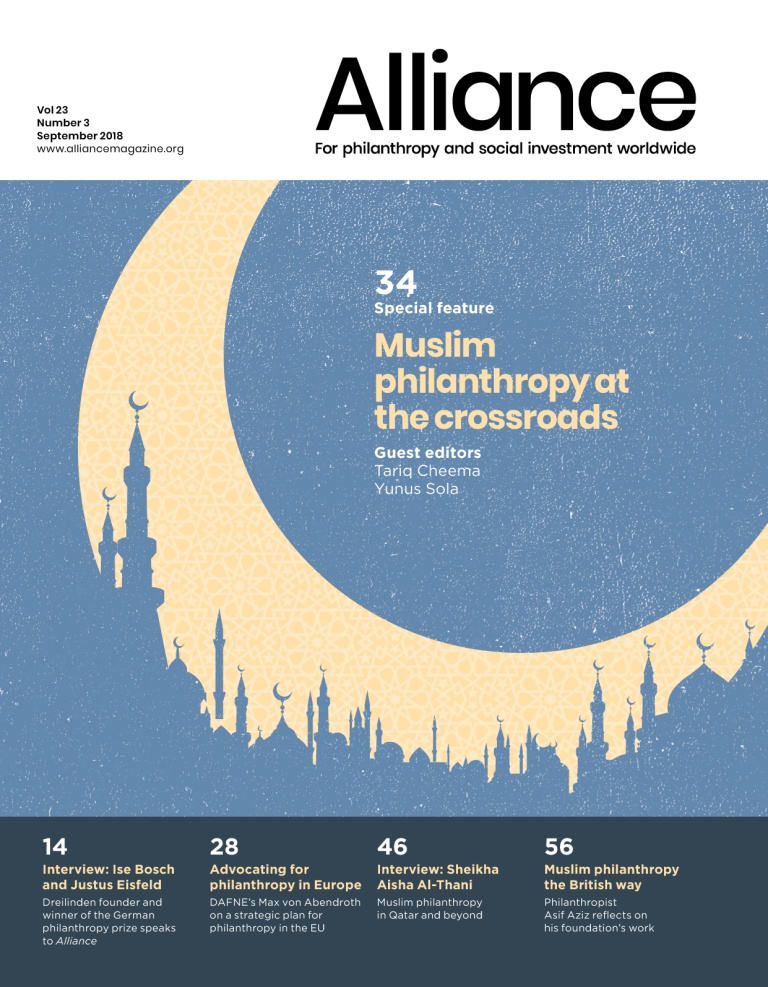Despite the traumatic impact of 9/11 on the civic landscape in the US, the Muslim American philanthropic sector has achieved a great deal with extremely limited resources
Muslim Americans are one of the most diverse religious communities in the US. In fact, no one national or ethnic group can claim to be a majority within the community. However, while this diversity offers incredible opportunities it also calls for a strategic, collaborative approach in responding to the challenges that the community faces.
Analysis of data from many international relief and national organizations suggests a many-fold increase in giving by Muslim Americans to Muslim affiliated non-profit organizations.
The 9/11 terrorist attacks were transformative to the American way of life. Its impact was particularly felt in the Muslim American community after it was established that the terrorists were of the Islamic faith. The US government immediately looked for potential domestic support for such terrorists and scrutinized Muslim American charities for a possible link.
Government raids on Muslim American organizations in 2002 created far-reaching controversy within the Muslim American community. Muslim American organizations have been forced to seek legitimacy not for something they did wrong but because of the perception that Muslim philanthropic activity is suspect.
Despite this fear of guilt by association, previous research by the author pushes back against the notion that there was a decline in Muslim philanthropic giving. In fact, analysis of data from many international relief and national organizations suggests a many-fold increase in giving by Muslim Americans to Muslim affiliated non-profit organizations. Furthermore, despite the fact that the American Muslim Poll, conducted by the Institute of Social Policy and Understanding, indicates that Muslims give less to religious causes than other faith groups, research by Dr Ihsan Bagby, an associate professor in Islamic Studies at the University of Kentucky, suggests an increase in the number of American mosques from under 1,300 in 2001 to over 2,100 in 2016.
The diminished role of the mosque in Muslim American civic activity requires the establishment of additional non-profits to fulfil other needs. This has resulted in many Muslim American non-profits targeting the same sources of funding and activity.
However, recent studies suggest some alarming statistics about Muslim American giving. The American Muslim Poll shows that Muslim Americans give less to religious causes than Jews, Catholics or Protestants. A recent article in the Journal on Muslim Philanthropy and Civil Society indicates that this may be the result of Muslim Americans being younger and poorer than other faith groups in America. The authors also argue that a lack of capacity and fundraising training hampers these organizations in raising sufficient funding.
Research also shows that while funding mosque building is seen as important, providing ongoing support to mosques is seen as unimportant. Mosques are largely seen as houses of worship rather than the centre of Muslim American civic activity. This perception may be fuelled by mosque leaderships’ unwillingness to take on a broader role or Muslim donors’ perception that mosques are not equipped to do so.
The diminished role of the mosque in Muslim American civic activity requires the establishment of additional non-profits to fulfil other needs. This has resulted in many Muslim American non-profits targeting the same sources of funding and activity. Yet Muslim American non-profits and philanthropic institutions are greatly under-resourced relative to the scope of activity before them. A recent internal study by a national Muslim American family foundation suggests that the average annual budget of Muslim American (non-mosque and Islamic school) non-profit organizations with only two employees was $197,000. There is reportedly only one Muslim American community foundation and one family foundation with at least one full-time staff member.
Diversity, crisis, conflict and prejudice has limited the opportunity of Muslim Americans to engage in philanthropy more broadly and through a strategic collaborative approach.
Making the work of these organizations even more difficult is the complicated notion of ‘strategic philanthropy’. This misunderstood term is pushing donors to focus on programmatic funding rather than building the capacity of the non-profit to serve the specific mission of the organization.
These challenges are further exacerbated by an anaemic response from mainstream philanthropy. American foundations have sought to either fund intermediary groups, organizations within the Muslim American community that seek equity, or have been focused on programmes. Mainstream foundations have not engaged with Muslim Americans by building an internal expertise on the Muslim American community. While many oppose bigotry, it would seem that these major foundations are afraid to engage because of the fear of partnering with the ‘wrong actor’. Islamophobia has thus created enough caution to limit the engagement of mainstream philanthropy in the latest American civil rights battle and challenge to pluralism.
Philanthropy, both Muslim American and mainstream, needs to focus on the broader health of the Muslim American non-profit and philanthropic sector by building organizational capacity and fostering greater collaboration.
It is important to note that even with very limited resources, Muslim American philanthropy has achieved a great deal, building over 2,100 mosques, 230 Islamic schools and thousands of additional non-profits to serve the vision of a few million Muslim Americans. However, this philanthropy is generally focused on the challenges and conflicts of today rather than seeking long-term innovative solutions. Diversity, crisis, conflict and prejudice has limited the opportunity of Muslim Americans to engage in philanthropy more broadly and through a strategic collaborative approach. While there are important exceptions to this such as the Pillars Fund, Institute of Social Policy and Understanding, Zaytuna College, El-Hibri Foundation and Unity Production Foundation, these initiatives represent a very small portion of the Muslim American non-profit and philanthropic sector.
Philanthropy, both Muslim American and mainstream, needs to focus on the broader health of the Muslim American non-profit and philanthropic sector by building organizational capacity and fostering greater collaboration. Such a focus will result in greater programmatic activity and more innovative solutions.
Shariq Siddiqui is director of the Muslim Philanthropy Initiative at the Indiana University Lilly Family School of Philanthropy.
Email siddiquisa@gmail.com
Twitter @Shariqindy







Comments (0)